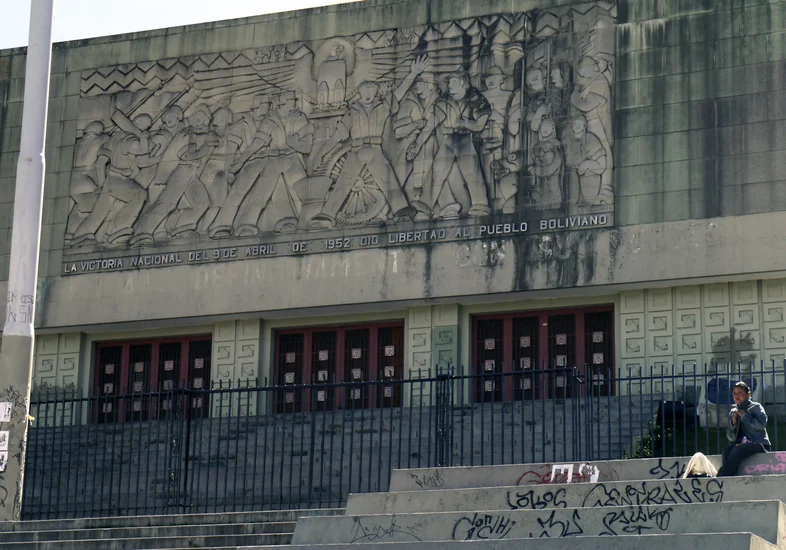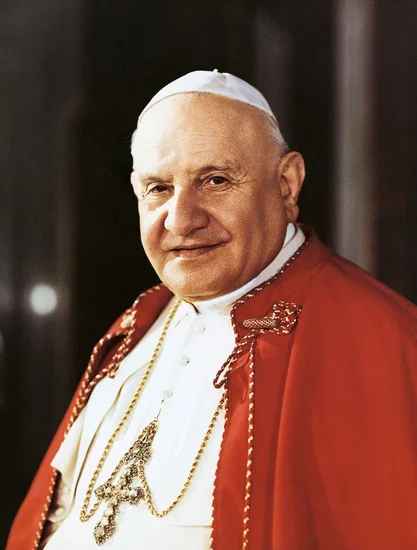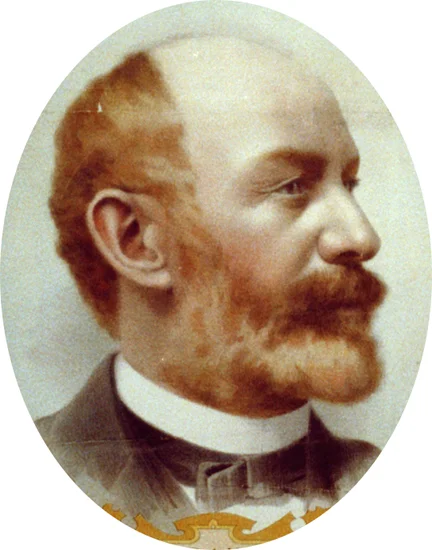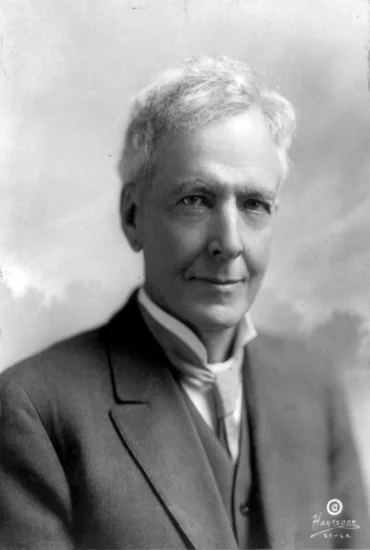April 11 stands as one of history’s most eventful days, witnessing the rise and fall of empires, groundbreaking discoveries, and moments that shaped our modern world across centuries of human achievement.

Politics and Government Events on April 11
1909 – The City of Tel Aviv is Founded
Jewish pioneers established the first Hebrew city in modern times on the Mediterranean coast. The founding ceremony took place on sand dunes north of the ancient port city of Jaffa.
This modest beginning would eventually grow into Israel’s largest metropolitan area. The city’s establishment marked a crucial milestone in the Zionist movement’s practical achievements.
1921 – Emir Abdullah Establishes Centralized Government in Transjordan
Emir Abdullah created the first unified administration in the newly formed British protectorate of Transjordan. His government brought together various tribal leaders under a single political framework.
This centralization laid the foundation for modern Jordan’s political institutions. The emir’s diplomatic skills helped navigate the complex relationships between British colonial interests and Arab aspirations.
1951 – President Truman Relieves General MacArthur of Command
President Harry Truman dismissed General Douglas MacArthur from his command of American forces in Korea and Japan. The decision followed MacArthur’s public disagreements with administration policy on the Korean War.
This dramatic confrontation highlighted the constitutional principle of civilian control over the military. The dismissal sparked intense political debate across America about war strategy and presidential authority.
1965 – Bolivian National Revolution Rebels Seize Presidential Palace

Revolutionary forces successfully captured the Palacio Quemado in La Paz during the Bolivian National Revolution. The rebels overthrew the existing government structure in a swift military operation.
This uprising transformed Bolivia’s political landscape and social order. The revolution brought significant changes to land ownership, mining rights, and indigenous rights throughout the country.
1979 – Ugandan Dictator Idi Amin is Deposed
Tanzanian forces and Ugandan exiles successfully removed dictator Idi Amin from power. The military campaign ended eight years of brutal rule that had devastated Uganda.
Amin’s regime was responsible for the deaths of an estimated 300,000 people. His removal marked the beginning of Uganda’s long struggle to rebuild its shattered institutions and economy.
1968 – President Johnson Signs Civil Rights Act of 1968

President Lyndon B. Johnson signed landmark legislation prohibiting discrimination in housing sales, rentals, and financing. The act represented a major victory for the civil rights movement.
This legislation addressed one of the most persistent forms of racial discrimination in America. The law’s passage came just days after the assassination of Martin Luther King Jr.
Military and Naval History on April 11
1908 – SMS Blücher Launched by Imperial German Navy
The Imperial German Navy launched SMS Blücher, the final armored cruiser in its ambitious fleet expansion program. The ship represented the pinnacle of German naval engineering and design.
This vessel would later participate in several major North Sea engagements during World War I. The Blücher’s construction demonstrated Germany’s determination to challenge British naval supremacy.
1945 – American Forces Liberate Buchenwald Concentration Camp
Allied troops liberated the notorious Buchenwald concentration camp, revealing the full horror of Nazi atrocities. American soldiers found thousands of surviving prisoners in deplorable conditions.
The liberation exposed systematic murder and medical experiments conducted by Nazi officials. Photographic evidence from Buchenwald became crucial documentation of Holocaust crimes.
1955 – Kashmir Princess Bombing Targets Chinese Premier
Kuomintang agents bombed the Air India Kashmir Princess aircraft in a failed assassination attempt on Chinese Premier Zhou Enlai. The explosion killed sixteen passengers and crew members.
Zhou Enlai had changed his travel plans at the last minute, avoiding the fatal flight. This incident heightened tensions between the People’s Republic of China and Taiwan.
1982 – FBI Miami Shootout Transforms Law Enforcement

A daylight gun battle in Dade County, Florida between FBI agents and bank robbers resulted in two agent deaths. The firefight exposed serious deficiencies in federal law enforcement weaponry.
This tragic encounter led to the development of the .40 S&W cartridge for law enforcement use. The FBI completely revised its firearms training and equipment standards following this incident.
Science and Discovery Milestones on April 11
1970 – Apollo 13 Launches on Ill-Fated Moon Mission
NASA launched Apollo 13 on what was intended to be the third lunar landing mission. The crew consisted of James Lovell, Jack Swigert, and Fred Haise.
An oxygen tank explosion would later transform this mission into a desperate survival story. The successful return of the crew became one of NASA’s greatest achievements in crisis management.
1976 – Apple I Computer Created
Steve Wozniak and Steve Jobs created the Apple I, their first commercial computer product. The machine was hand-built in the Jobs family garage in Los Altos, California.
This primitive computer marked the beginning of the personal computer revolution. The Apple I’s design philosophy emphasized user-friendly operation over technical complexity.
2006 – Iran Announces Uranium Enrichment Success
Iranian President Mahmoud Ahmadinejad announced that Iran had successfully enriched uranium using centrifuge technology. The announcement sparked international concern about nuclear proliferation.
This development escalated tensions between Iran and Western nations over nuclear capabilities. The enrichment program became a central issue in subsequent international sanctions and diplomacy.
2012 – Massive Earthquake Strikes Wharton Basin

A powerful earthquake doublet occurred in the Wharton Basin west of Sumatra, Indonesia. The strike-slip earthquakes registered among the largest ever recorded in the region.
The seismic event generated a non-destructive tsunami observed on Nias Island. Ten people died and twelve were injured despite the earthquake’s remote oceanic location.
Cultural and Arts Events on April 11
1963 – Pope John XXIII Issues Pacem in Terris

Pope John XXIII published his groundbreaking encyclical Pacem in Terris, addressing world peace in human terms. The document marked the first papal encyclical addressed to all Christians rather than Catholics alone.
This revolutionary approach emphasized universal human dignity and rights. The encyclical influenced Catholic social teaching and interfaith dialogue for decades to come.
1977 – Silver Jubilee Routemaster Buses Launched in London
London Transport introduced special Silver Jubilee AEC Routemaster buses to commemorate Queen Elizabeth II’s 25th anniversary. These distinctive vehicles featured special royal livery and decorations.
The buses became iconic symbols of British celebration and national pride. Their introduction marked a high point in London’s public transportation history and royal commemoration.
1987 – London Agreement Signed Between Israel and Jordan
Israeli Foreign Minister Shimon Peres and King Hussein of Jordan secretly signed the London Agreement. The document outlined potential frameworks for Middle East peace negotiations.
This clandestine diplomacy represented a significant breakthrough in Arab-Israeli relations. The agreement’s secrecy reflected the sensitive nature of peace initiatives in the volatile region.
Religious and Social Events on April 11
1968 – German Student Leader Rudi Dutschke Shot

Student movement leader Rudi Dutschke survived an assassination attempt in West Berlin. The attack left him with permanent brain damage that affected his speech and mobility.
This violence sparked massive student protests across Germany and Europe. Dutschke’s shooting became a rallying point for the international student movement of the 1960s.
1981 – Massive Brixton Riots Erupt in London

Widespread rioting erupted in Brixton, south London, following tensions between police and the local community. The violence resulted in nearly 300 police injuries and 65 serious civilian injuries.
The riots highlighted deep-seated racial tensions and economic inequality in urban Britain. These events prompted significant reforms in British policing and community relations.
1993 – Lucasville Prison Riot Begins
Four hundred and fifty prisoners initiated a major riot at Southern Ohio Correctional Facility in Lucasville. The uprising continued for ten days, citing grievances about prison conditions and forced medical treatment.
Religious objections to tuberculosis vaccination sparked the initial protest. The riot became one of the longest prison uprisings in American history.
Business and Economic Events on April 11
1990 – Customs Officers Seize Suspected Supergun Barrel
British customs officers in Middlesbrough seized what they believed was a massive gun barrel destined for Iraq. The interception revealed an international arms smuggling operation.
This discovery exposed Iraq’s attempts to develop long-range artillery capabilities. The seizure contributed to growing international concern about Saddam Hussein’s military ambitions.
2002 – Massive Anti-Chávez Protests Rock Venezuela
Over two hundred thousand protesters marched in Caracas demanding President Hugo Chávez’s resignation. The demonstration resulted in nineteen deaths and temporarily destabilized the government.
These protests reflected deep political divisions in Venezuelan society. The events foreshadowed years of political turmoil and economic crisis in the oil-rich nation.
1951 – Stone of Scone Recovered at Arbroath Abbey
The Stone of Scone was discovered at Arbroath Abbey after being taken from Westminster Abbey by Scottish nationalist students. This ancient coronation stone held immense symbolic importance for Scottish independence.
The stone’s theft had embarrassed British authorities and inspired Scottish nationalism. Its recovery marked the end of a dramatic chapter in Anglo-Scottish relations.
Transportation and Infrastructure on April 11
1952 – Pan Am Flight 526A Ditches Near San Juan

Pan Am Flight 526A experienced engine failure and ditched in the ocean near San Juan, Puerto Rico. The crash killed 52 people in one of the worst aviation disasters of the era.
The accident highlighted the dangers of over-water flights with early jet aircraft. Investigation findings led to improved safety protocols for international aviation.
2007 – Borussia Dortmund Team Bus Attacked
The German football team Borussia Dortmund’s bus was attacked with roadside bombs in Dortmund. Three explosive devices detonated as the bus traveled to Westfalenstadion for a Champions League match.
The attack injured defender Marc Bartra and traumatized the entire team. This incident marked a new level of terrorism targeting professional sports in Europe.
2018 – Algerian Military Transport Crashes
An Algerian Air Force Ilyushin Il-76 crashed near Boufarik, Algeria, killing all 257 people aboard. The military transport was carrying personnel and their families.
This disaster represented one of the worst aviation accidents in Algerian history. The crash highlighted safety concerns with aging military aircraft fleets.
Sports and Recreation on April 11
2001 – Australia Sets World Record Soccer Victory
The Australian national soccer team defeated American Samoa 31-0 in World Cup qualifying, setting a record for the largest margin of victory in international football. Archie Thompson scored 13 goals, also a world record.
This extraordinary match highlighted the vast differences in football development between nations. The game became a legendary moment in World Cup qualifying history.
1965 – Palm Sunday Tornado Outbreak Devastates Midwest

Fifty-five tornadoes struck six Midwestern states, killing 266 people in one of the worst tornado outbreaks in American history. The storms caused devastating damage across Indiana, Ohio, and Michigan.
This natural disaster led to improved tornado warning systems and emergency preparedness. The outbreak demonstrated the need for better meteorological forecasting and public safety measures.
2011 – Minsk Metro Bombing Kills 15

An explosion in the Minsk Metro in Belarus killed 15 people and injured 204 others. The bombing occurred during rush hour at the central Oktyabrskaya station.
This terrorist attack shocked the normally peaceful nation of Belarus. The incident led to increased security measures throughout the country’s transportation systems.
Notable Births on April 11
1908 – Jane Bolin, American Lawyer and Judge

Jane Bolin was born in Poughkeepsie, New York, destined to become a pioneering figure in American law. She excelled academically from an early age despite facing racial discrimination.
Bolin would later become the first African American woman judge in the United States. Her groundbreaking career opened doors for countless women and minorities in the legal profession.
1940 – Władysław Komar, Polish Shot Putter
Władysław Komar entered the world in Warsaw, Poland, during the early months of World War II. His athletic talents emerged during Poland’s post-war reconstruction period.
Komar would eventually win Olympic gold in shot put at the 1972 Munich Games. His victory represented a triumph of Polish athletic determination and training methods.
1953 – Andrew Wiles, English Mathematician

Andrew Wiles was born in Cambridge, England, showing early fascination with mathematical problems. His childhood curiosity about number theory shaped his academic pursuits.
Wiles would later prove Fermat’s Last Theorem, solving a 350-year-old mathematical puzzle. His achievement earned him worldwide recognition and numerous prestigious awards.
1961 – Vincent Gallo, American Actor and Director

Vincent Gallo was born in Buffalo, New York, into a working-class Italian-American family. His rebellious nature and artistic interests emerged during his teenage years.
Gallo would become a controversial figure in independent cinema and art. His unconventional approach to filmmaking and performance art challenged traditional entertainment boundaries.
1970 – Trevor Linden, Canadian Ice Hockey Player

Trevor Linden was born in Medicine Hat, Alberta, in a hockey-loving Canadian family. His natural skating ability and leadership qualities developed during youth hockey.
Linden would become captain of the Vancouver Canucks and a beloved figure in Canadian hockey. His leadership both on and off the ice exemplified the best traditions of the sport.
Notable Deaths on April 11
1906 – James Anthony Bailey, American Circus Owner

James Anthony Bailey, co-founder of the Ringling Bros. and Barnum & Bailey Circus, died at age 58. His innovative approach to circus management revolutionized American entertainment.
Bailey transformed the circus from a simple traveling show into a massive entertainment enterprise. His organizational skills and marketing genius created the template for modern entertainment spectacles.
1926 – Luther Burbank, American Botanist

Luther Burbank, the renowned plant breeder and horticulturist, died at his California home. His experimental work produced over 800 new plant varieties during his lifetime.
Burbank’s innovations included the Russet Burbank potato and numerous fruit varieties. His scientific approach to plant breeding influenced agricultural practices worldwide.
1985 – Enver Hoxha, Albanian Communist Leader

Enver Hoxha, Albania’s longtime communist dictator, died after 40 years of authoritarian rule. His isolationist policies had kept Albania cut off from the outside world.
Hoxha’s death marked the beginning of Albania’s transition from communism to democracy. His legacy included both industrial development and severe human rights violations.
2007 – Kurt Vonnegut, American Novelist

Kurt Vonnegut, the acclaimed author of “Slaughterhouse-Five,” died at age 84. His darkly comic novels explored themes of war, mortality, and human absurdity.
Vonnegut’s unique voice influenced generations of writers and readers. His anti-war message and humanistic philosophy resonated with audiences worldwide.
2013 – Maria Tallchief, American Ballerina

Maria Tallchief, America’s first prima ballerina, died at age 88. Her Native American heritage and extraordinary talent broke barriers in classical ballet.
Tallchief’s performances with the New York City Ballet established her as one of dance’s greatest artists. Her achievements inspired countless dancers and elevated American ballet’s international reputation.
Holidays and Observances on April 11
World Parkinson’s Day
World Parkinson’s Day raises global awareness about Parkinson’s disease and its impact on millions of people worldwide. The observance promotes research funding and support for patients and families.
Medical professionals and advocacy groups organize educational events and fundraising activities. The day honors the birthday of Dr. James Parkinson, who first described the disease in 1817.
Juan Santamaría Day in Costa Rica
Costa Rica commemorates Juan Santamaría Day, honoring the national hero who died in the Second Battle of Rivas. Santamaría sacrificed his life to help defeat American filibuster William Walker’s forces.
This holiday celebrates Costa Rican independence and national sovereignty. The observance includes parades, cultural events, and patriotic ceremonies throughout the country.
International Louie Louie Day

International Louie Louie Day celebrates the iconic rock and roll song written by Richard Berry. The simple three-chord progression became one of the most covered songs in music history.
Music enthusiasts worldwide perform versions of “Louie Louie” in various styles and languages. The day honors the song’s cultural impact and its role in popular music development.
